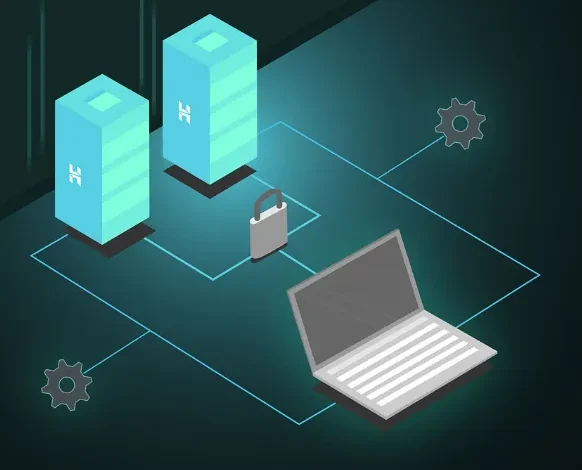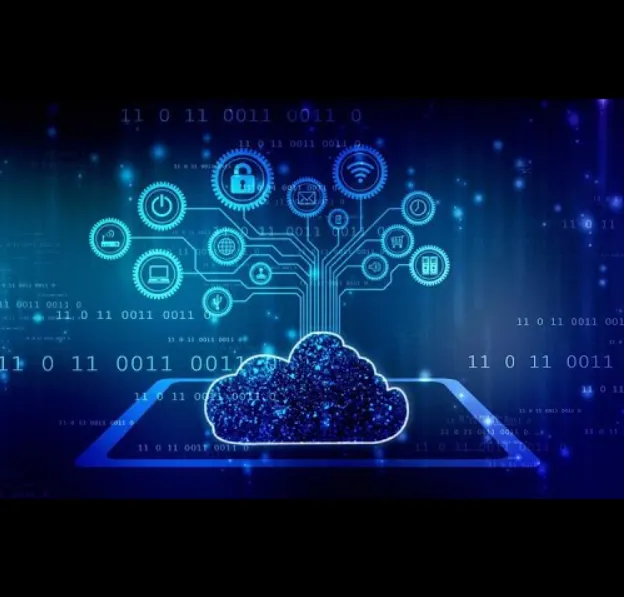Cloud Server vs Dedicated Server: Which One is Right for Your Business?

Choosing the right server for your business is a crucial decision. Two of the most popular options are cloud servers and dedicated servers. But how do you know which one will suit your specific needs? In this guide, we will break down the key differences between cloud and dedicated servers, helping you decide which option is the best fit for your business.
What is a Cloud Server?
A cloud server is a virtualized server that operates on a cloud infrastructure, allowing businesses to scale their resources as needed. These resources include CPU power, RAM, and storage, which can be increased or decreased depending on the demand. Unlike dedicated servers, cloud servers are not tied to any physical hardware. They offer flexibility, cost-effectiveness, and quick deployment, making them an attractive choice for many businesses.
With a cloud server, you essentially pay for what you use, without worrying about hardware maintenance or upfront costs. This is ideal for businesses with fluctuating workloads or those looking for a cost-efficient solution.
Advantages of Cloud Servers:
- Instant Deployment: Cloud servers can be set up and operational within minutes.
- Scalability: Resources can be adjusted based on current needs, ensuring you only pay for what you use.
- Cost-Efficiency: There are no upfront hardware costs or maintenance fees, making it affordable on a monthly basis.
- Uptime and Reliability: Cloud providers offer strong uptime guarantees, ensuring your operations run smoothly without interruptions.
- Data Redundancy: Data is stored across multiple locations, providing an additional layer of protection in case of server failure.
Disadvantages of Cloud Servers:
- Limited Resources: While cloud servers are highly scalable, they may not be suitable for very resource-heavy tasks or large operations.
- Shared Environment: Cloud resources are shared with other users, which can sometimes affect performance.
- Internet Dependency: Cloud hosting requires a stable internet connection, and any disruptions can impact access to your data and services.
What is a Dedicated Server?
In contrast to cloud servers, a dedicated server is a physical machine dedicated solely to your business. All the server’s resources, including CPU, RAM, storage, and bandwidth, are exclusively yours. Dedicated servers are typically housed in a data center, and they require more management and maintenance than cloud servers.
Because dedicated servers use physical hardware, you’ll need to invest in the necessary equipment upfront, and scaling the server requires manual intervention, such as upgrading hardware components. This makes dedicated servers more suitable for businesses with high-performance needs.
Advantages of Dedicated Servers:
- Full Control: You have complete control over the server, including hardware, software, and configurations.
- Powerful Performance: Dedicated servers provide unmatched performance, making them ideal for resource-heavy applications.
- Customization: You can fully customize the server’s setup to match your specific business needs.
- Dedicated Resources: Since no other users share the hardware, your business enjoys uninterrupted access to all server resources.
Disadvantages of Dedicated Servers:
- High Costs: Dedicated servers typically come with a high initial cost and require ongoing management fees.
- Limited Scalability: While you can upgrade hardware, scaling a dedicated server isn’t as quick or flexible as cloud hosting.
- Maintenance: Dedicated servers require regular maintenance and updates, which may require technical expertise.
Cloud vs Dedicated Server: A Detailed Comparison
Both cloud and dedicated servers have their own strengths and weaknesses. To help you make an informed decision, here’s a side-by-side comparison:
| Feature | Cloud Servers | Dedicated Servers |
|---|---|---|
| Infrastructure | Virtualized infrastructure, fully managed. | Physical server, dedicated hardware. |
| Performance | High, but may experience occasional lag. | Highest performance due to dedicated hardware. |
| Investment | No need for hardware; pay as you go. | Higher upfront cost and ongoing maintenance. |
| Scalability | Easily scalable, resources adjusted in real-time. | Requires manual intervention for scaling. |
| Customization | Limited to cloud provider’s configuration options. | Complete customization of hardware and software. |
| Management | Managed by the cloud provider; client handles minimal tasks. | Full management or self-management of the server. |
| Redundancy | High redundancy, with multiple backup locations. | Limited redundancy, more costly for additional backups. |
| Migration | Quick and simple data migration. | Slower, often requiring detailed planning to avoid downtime. |
| Availability | Accessible anytime with internet connection. | May have limited remote access; depends on network reliability. |
Key Considerations When Choosing a Server
When deciding between a cloud or dedicated server, there are several factors to consider. Here are five critical ones:
- Budget: Cloud servers are typically more affordable, with no large upfront costs. Dedicated servers, however, require a significant investment, especially if you need to purchase the hardware.
- Performance Requirements: If you need high processing power and constant uptime, a dedicated server might be your best bet. Cloud servers offer flexibility but may not provide the same performance for large operations.
- Applications and Tools: If you require custom software or specific tools for tasks like big data processing, a dedicated server offers more flexibility. Cloud servers may have limited software options.
- Business Goals: If your business requires high computing power and full control over the server, a dedicated server is the better choice. For more flexible, lightweight applications, cloud hosting is ideal.
- Security Needs: Both cloud and dedicated servers offer strong security, but dedicated servers provide more control over security measures, making them a better choice for businesses with high security demands.
When Should You Choose a Cloud Server?
Cloud servers are a great choice for businesses that need flexibility and cost-effectiveness. Here are some situations where a cloud server might be the best option:
- Websites or eCommerce stores with fluctuating traffic
- Lightweight applications with unpredictable usage patterns
- Businesses that need instant deployment and minimal downtime
- Operations that require constant availability without heavy resource demands
When Should You Choose a Dedicated Server?
Dedicated servers are better suited for businesses that need high performance and control over their server environment. Here are some scenarios where a dedicated server is the right choice:
- Large-scale online multiplayer gaming servers
- Applications requiring extensive computing power or memory
- Websites with high traffic and resource demands
- Businesses handling large databases or sensitive data
Conclusion
Choosing between cloud and dedicated servers depends on your business’s specific needs. Cloud servers offer flexibility and scalability for growing businesses, while dedicated servers provide unmatched performance and control for large-scale operations. By understanding your business requirements, you can make an informed decision that helps drive your success.







